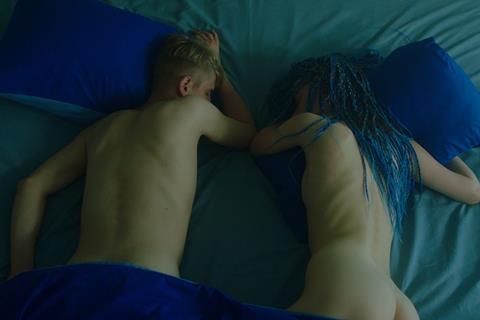
Tallinn Black Nights Film Festival (PÖFF) has defended its selection of Russian film Deaf Lovers, which it describes as “an artistically powerful anti-war work”.
A statement issued by festival director Tiina Lokk on behalf of the PÖFF team acknowledged “some serious backlash, not only among Ukrainians but also among Russians – without anyone having seen it yet.”
The festival has removed Deaf Lovers from its ‘Standing with Ukraine’ programme, for films about and from Ukraine, and which is dedicated to ‘Ukrainians who are determined to defend their right to decide their own future’.
The film will remain in the Official Selection Competition, and will have its world premiere in Tallinn on Sunday, November 17; with further festival screenings scheduled for Monday, November 18 and Wednesday, November 20.
“We invite you to the cinema and look forward to a good discussion afterward,” said Lokk’s statement. “Just keep in mind—while freedom of expression is important, it’s essential to respect others as well. In our discussions, we avoid defamation, and follow the law. If anyone breaks these rules, the organizers of PÖFF are prepared to take action to protect everyone’s rights.”
Deaf Lovers is the fifth feature from Russian filmmaker Boris Guts. It follows a Ukrainian girl and Russian boy who meet in Istanbul – finding connection at first, but then coming to conflict over the ongoing war. This culminates in violence against the girl, which she refuses to accept and leaves the boy, according to PÖFF’s description of the film.
According to PÖFF’, Guts left Russia following the outbreak of full-scale war in February 2022, and has since been living as a refugee in several European countries, currently in Serbia. He is a critic of the Russian actions against Ukraine and of the regime of Russian president Vladimir Putin, said the festival.
Deaf Lovers filmed in Istanbul with an international crew, and, according to PÖFF, was made on a low budget funded entirely by Guts’ own money. Producers are Guts, Anastasiya Gusentsova, Maxim Mussel, Daria Likhacheva and Maksim Podolski. Estonian studio Max-Grip is a co-producer on the film.
Antipode Sales International, originally based in Russia but is now headquartered in Israel, is handling sales on the title. The company has previously sold films that oppose the Russian regime including Far Eastern Golgotha and Putin Forever?.
Guts’ previous film Minsk is based on the events that followed the 2020 Belarusian presidential elections. Filmed in Estonia and supported by the Estonian Film Institute and Cultural Endowment of Estonia, it played at PÖFF in 2022; it is banned by Belarus and Russia.
In the statement, PÖFF highlighted its support for Ukraine over several years. It has stopped screening state-funded Russian and Belarusian films since 2022, and says it was the first festival to bring Ukrainian projects put on hold during the war to Cannes.
The 2024 programme includes eight Ukrainian-produced or co-produced films.
“PÖFF has always supported independent voices, and kept the door open to all filmmakers whose films represent democratic values,” said the statement. “This year’s edition features Israeli and Palestinian films side by side. PÖFF has also always shown films by oppositional Russian and Belarusian filmmakers who live in exile and represent different values from the official doctrine of their home countries. The same applies to Georgian opposition filmmakers fighting against the creeping censorship in their country.”
Prior to this year’s festival, Lokk told Screen of her concerns about threats to the independence of film festivals, saying “there is no right to demand that you should take a film off your programme.”
PÖFF runs until Sunday, November 24.







![The Brightest SunScreen[Courtesy HKIFF]](https://d1nslcd7m2225b.cloudfront.net/Pictures/274x183/3/5/0/1448350_thebrightestsunscreencourtesyhkiff_312678.jpg)

















No comments yet